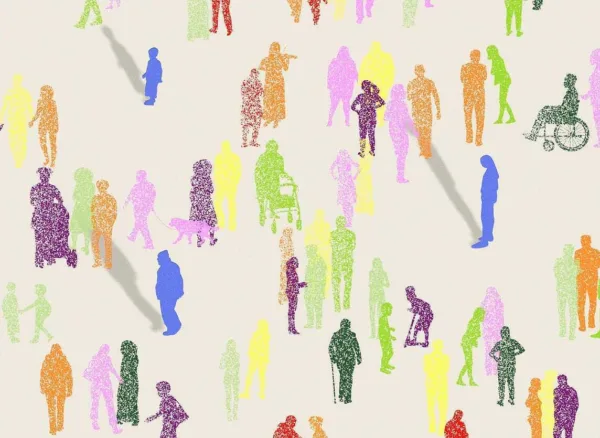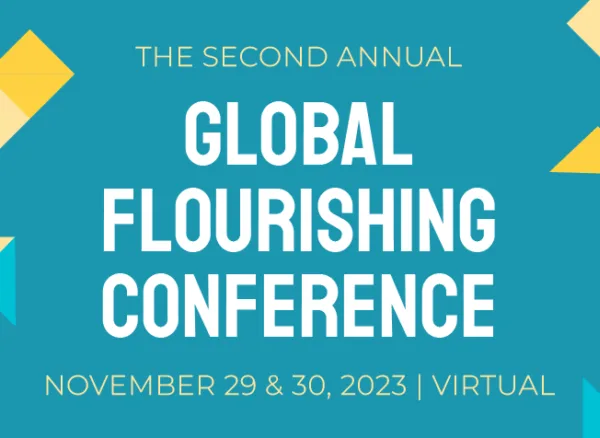Menu
Netta Weinstein, an Associate Professor in the School of Psychology and Clinical Language Sciences at the University of Reading, and her colleague Guy Itzchakov, an Assistant Professor in the Department of Human Services, Faculty of Social Welfare and Health Science at the University of Haifa study how listening relates to human flourishing. In this piece, they reveal what their research is uncovering about the power of listening to each other well and the roles we each play in social exchange, especially during polarizing conversations.
"Listening plays an important role in efforts to support freedom of expression, overcome biases, and come to shared understanding with dissimilar others," say the researchers. "Listening well is like a muscle that requires training."
Jordan Mansell, University of Western Ontario along with a large interdisciplinary research team, based at Western, but also including nine researchers in multiple universities in Canada and the United States, are investigating how differences in emotional experience and regulation affect the development of prejudicial attitudes. The team will use their research to develop better anti-racism programs, including interventions aimed at reappraisal of negative emotions, improving the prospects for the social and economic development and interpersonal connections needed to support human flourishing.
Taking a cross-cultural and interdisciplinary ecological systems approach, Jocelyn Dautel, Assistant Professor in the School of Psychology, Queen’s University Belfast, in collaboration with an international and interdisciplinary team of researchers, is working to empower human flourishing through epistemic vigilance in truth-seeking. The team is exploring how truth is defined and produced; how it is evaluated and transmitted at different levels of society; how it is related to moral, spiritual, and socio-political orientations; and how interventions can create more knowledgeable and resilient societies.
In this piece, the team shares how they are studying polarizing narratives at different levels of society, with a focus on youth in Northern Ireland.
When 18-year-old Sompa Rani Roy from Bangladesh was asked what is necessary to feel happy and to achieve her dreams, she shared that her inspiration comes from her peers, parents, teachers, and community. She also pointed to two crucial ingredients required for adolescent flourishing: “a fearless mind and a bright future.”
Carol Henry at the University of Saskatchewan, and Melani O'Leary of World Vision Canada, along with collaborators at universities throughout Canada and in Uganda, seek to understand the determinants of human flourishing among adolescents. The goal of their research is to develop a conceptual framework that integrates elements of physical, mental, and social dimensions of well-being of this age group through a gender-transformative lens.
Shigehiro Oishi, Professor of Psychology at the University of Virginia, and his research team are looking to radically expand the conceptual space of a good life. Their studies aim to move beyond the current hedonic vs. eudaimonic dichotomy to include a psychologically rich life, or a life full of diverse interesting experiences. In this piece, Oishi describes in layman's terms how psychological richness can be seen as another dimension of human flourishing.
Is flourishing possible “against the odds?” Can people achieve happiness, a deep sense of purpose, personal and spiritual growth, and affirming social bonds— even against a backdrop of political turmoil, economic distress, geographic displacement, social isolation, racial or religious oppression, and serious illness? Through mixed methods, Deborah Carr and a team of multidisciplinary researchers at Boston University are working to expand and refocus the paradigm of human flourishing science, by integrating persons living under adverse conditions in which flourishing may appear elusive, if not impossible.
In Part 1 of this piece, Brie Linkenhoker, founder of Worldview Studio, shares how the stories we tell ourselves form and influence our lives, differ across cultures and generations, and change with meaningful intervention. Through science and design, Worldview Studio and its network of university-based collaborators aim to better understand the stories we tell ourselves - about our place in the world, what motivates others, and what the future likely holds - and explore how these stories form; influence behavior, wellbeing and achievement; differ across cultures and generations; and change with meaningful intervention from families, mentors, and media.
Part 2 continues with a consideration of how people define their relationships with science, and what the idea of “trust in science” means to non-scientists in the general public.
Currently, most Human Flourishing (HF) research has been conducted in High-Income Countries (HIC.) There is relatively little research in HF conducted in Low- and Middle-Income Countries (LMICs.) Exploring how Human Flourishing is conceptualized in LMICs will provide important insights concerning the fundamental meaning and instantiation of the human flourishing concept. A project led by Toni C. Antonucci at the University of Michigan with Pamela Wadende at Kisii University in Kenya is bringing underrepresented perspectives to the field of human flourishing by partnering with multidisciplinary scholars from 6 African countries: Cameroon, Ethiopia, Ghana, Kenya, Tanzania, and Uganda. These scholars are part of a highly prestigious program funded by the International Society for Study of Behavioural Development and the Jacobs Foundation.
"Compassion is the authentic response of love to suffering," says David Addiss from The Task Force for Global Health. Addiss is part of a multidisciplinary team including scholars from Harvard University's Human Flourishing Program, the University of Calgary's Compassion Research Lab, and Emory University, as well as members from the World Health Organization and Leapfrog to Value. Their research is focused on discovering the meaning and mechanisms of human flourishing in the context of suffering; understanding how compassion alleviates suffering and promotes flourishing in healthcare settings; and developing large-scale evidence-based programs to promote compassionate, high-quality national health systems.
Blaine Fowers and a research team at the University of Miami are exploring the possibility of a general account of human flourishing, and in this piece, offer a non-exhaustive list of criteria for this. Their project looks at human flourishing in multiple cultural groups beyond WEIRD (Western, Educated, Industrialized, Rich, and Democratic) populations, in order to: render flourishing science more accessible and applicable to world populations; illuminate various models of flourishing; define common factors and differences in flourishing across cultures and degrees of affluence, and identify a variety of barriers to human flourishing across cultures.
Michael Muthukrishna and researchers associated with his lab at the London School of Economics are looking at using dual inheritance theory and cultural evolution as a framework to address contextual gaps in public policy. This piece is based on the forthcoming book chapter “Cultural Evolutionary Behavioural Science in Public Policy” in the Oxford Handbook for Cultural Evolution, from Robin Schimmelpfennig and Michael Muthukrishna, and features an illustration of The Evolution of Behavioral Science by Veronika Plant (detail pictured above.)



